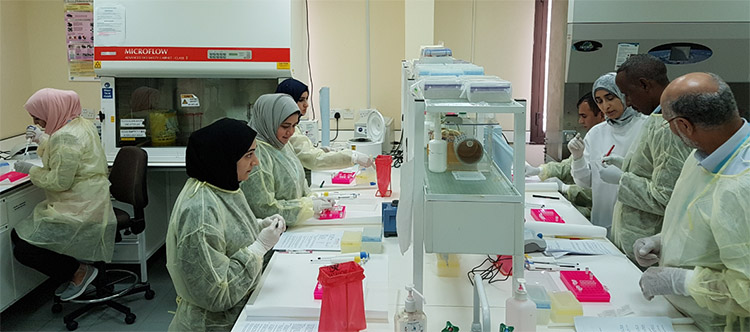
27 January 2020, Cairo, Egypt – In light of the continued global situation related to the transmission of novel coronavirus, WHO’s Regional Office continues to work closely with Member States in the Eastern Mediterranean Region to ensure that national preparedness and response efforts are accelerated in line with the International Health Regulations (IHR 2005).
A total of 1320 confirmed cases have been reported for novel coronavirus (2019-nCoV) globally, out of which 1297 cases are in China, about 237 people have been reported as severely ill and 41 people have died (as of 10 am, 25 January, GVA time). New cases have also been reported in Australia, France, Malaysia [as of 25 January]. Almost all cases have a history of travel to China.
While no confirmed cases has been reported yet in the Eastern Mediterranean Region. WHO is advising countries to strengthen their preparedness and response capacities. A regional plan to enhance preparedness and operational readiness of countries has been developed using a risk assessment approach. Active entry screening has been established in the majority of the countries in the Region, and details on the entry screening measures are being collected.
Health supplies, including thermal scanners, have been procured and prepositioned in WHO’s regional logistics hub in Dubai, and 3 international reference laboratories for detection have been established, with WHO’s Regional Office coordinating the shipment of laboratory samples.
WHO’s Regional Office continues to monitor the rapidly evolving situation to minimize the risk of novel coronavirus importation into the Region, and to work closely with countries to ensure that potential cases are quickly identified, tested, and responded to.
WHO recommends that to protect against the novel virus and reduce general risk of its transmission, individuals should avoid close contact with people suffering from acute respiratory infections, wash hands frequently, especially after direct contact with ill people or their environment, and avoid unprotected contact with farm or wild animals. WHO does not recommend any specific additional health measures for travellers.
For further information, please contact:
Inas Hamam
Mobile: +201000157385








